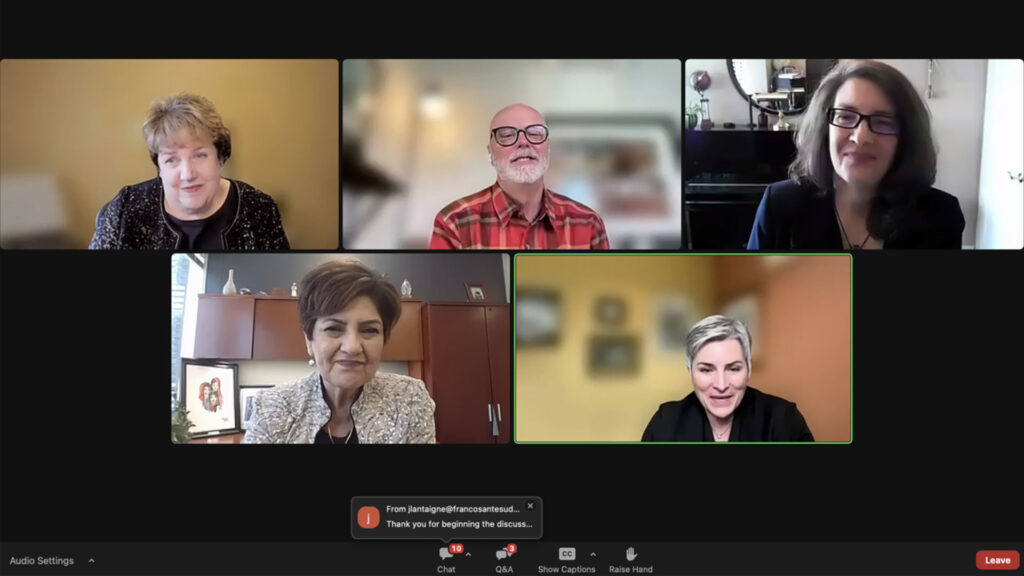
I was pleased to join the Canadian College of Health Leaders for part of their National Conversation on solutions for challenges facing the health system.
Moderator Dr. Michael Gardam asked panelists to describe what health systems would look like in a perfect world, one where our health workforce was engaged and supported in Canada.
It’s a big question, but here at Health Workforce Canada we believe that in an ideal world we’d be providing the best possible care, at the best possible cost, to achieve the best possible outcomes for the whole population. This would all be through an equity lens and supported by a strong, healthy health workforce.
In a perfect world, health leaders would be well-trained to cultivate a strong workforce culture, to lead their teams with confidence and resilience, and nurture a new generation of leaders by fostering collaboration and mentoring.
An engaged and supportive workforce would mean placing priority on the well-being, growth and development of health workers, ultimately leading to stronger patient outcomes and healthier people of Canada.
Services would be highly integrated and seamless for everyone. Wait times would be within clinically acceptable benchmarks. Health inequities would be addressed through strong, integrated prevention and social services.
No person in Canada would be afraid to seek services. Everyone would feel safe and welcome seeking and receiving care.
Our definition of health care workers would be broad and inclusive. Their health and safety would be firmly embedded in the fabric of health organizations, including appropriate staffing levels, equipment, resources and measures to prevent violence and harassment.
In an ideal world, retention would be at a record high. Bias, racism and discrimination in the workplace would be eliminated – for patients, families and for health workers.
There would be comprehensive support systems in place to address the physical, mental and emotional well-being of health care staff – including mental health services, counselling and resources for helping those experiencing stress and burnout.
There would be learning and development opportunities to equip people to deliver the highest possible quality of care and adapt to clinical advancement and all types of technology, including AI.
Health care workers would be fairly and appropriately compensated for their skills, expertise and dedication since competitive salaries, benefits and incentives attract and retain top talent.
I could go on and on.
But I’ll finish with this one. In an ideal world, health workers would be highly respected members of their communities, with their contributions recognized and appreciated through public recognition, expressions of gratitude, and support from governments, institutions and communities.
We still have a lot of work to do, but we’re getting there. There is hope on the horizon and I’m excited to see what Health Workforce Canada and our partners can do to realize our collective vision for a strong, healthy workforce for Canada.
